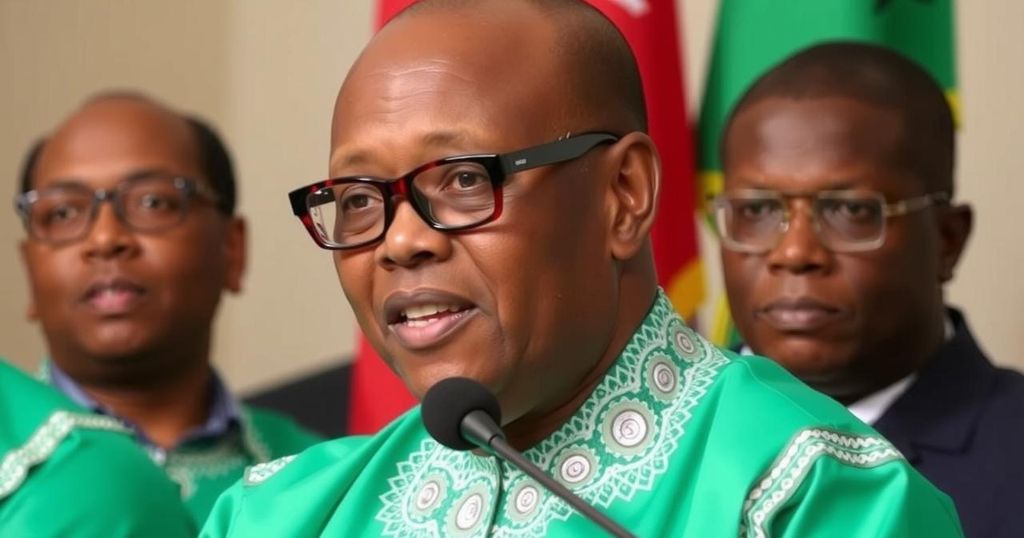Mahama Attributes NPP Defeat to Tone-Deaf Governance

In his recent remarks, President-elect John Dramani Mahama asserted that the NPP’s electoral defeat stemmed from their disconnect with Ghanaian citizens’ concerns. He highlighted the government’s failure to acknowledge public grievances as a key factor in their loss. Mahama claimed the election results were predictable and indicated a significant communication gap between the government and the populace.
In a recent statement, President-elect John Dramani Mahama attributed the electoral defeat of the New Patriotic Party (NPP) to their disconnection from the realities faced by Ghanaian citizens. He noted that the government’s inability to respond to the escalating concerns and challenges of the populace contributed significantly to their disappointing performance in the 2024 elections. Mahama criticized Dr. Mahamudu Bawumia’s assertion of disappointment over their electoral loss, suggesting it further exemplified the NPP’s estrangement from the actual sentiments of the people. He emphasized the clear signs leading to their defeat, which he considered predictable given the context of public dissatisfaction.
The political landscape in Ghana has seen dramatic shifts following the recent elections, marked by the NPP’s substantial loss under President Nana Addo Dankwa Akufo-Addo. The NPP’s governance has been scrutinized as citizens have increasingly voiced grievances regarding economic and social issues. This election cycle has become particularly notable as Mahama emerged victorious, making history with an unprecedented 56% of the vote, prompting discussions about the effectiveness of current governance and political engagement in the country.
In summary, John Dramani Mahama’s commentary underscores the critical need for political parties to remain attuned to the concerns of the electorate. The NPP’s failure to recognize and address citizens’ grievances led to an Electoral defeat that many viewed as inevitable. The outcome has prompted a renewed dialogue on governance, responsiveness, and the future direction of political engagement in Ghana.
Original Source: www.ghanaweb.com








